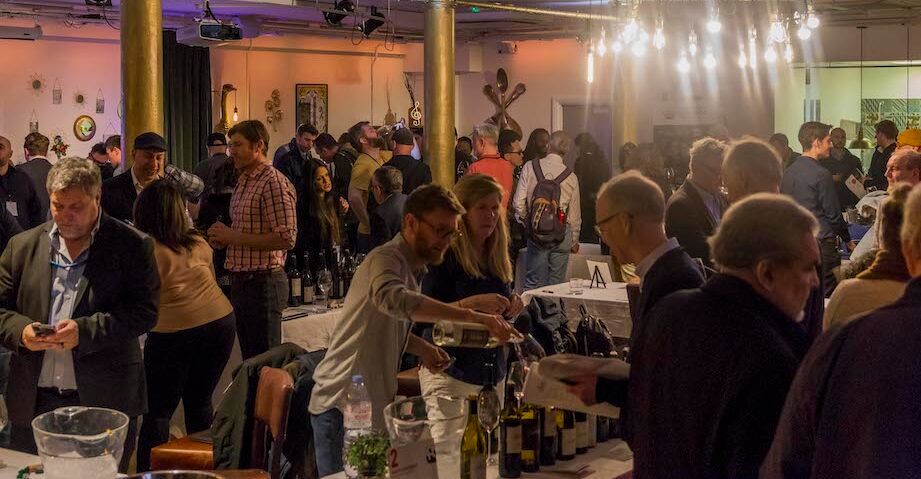“The UK is a notoriously hard market … but it’s nice to have the prestige of our premium wines being here,” says Christophe Hedges of Washington’s Hedges Family Estate.
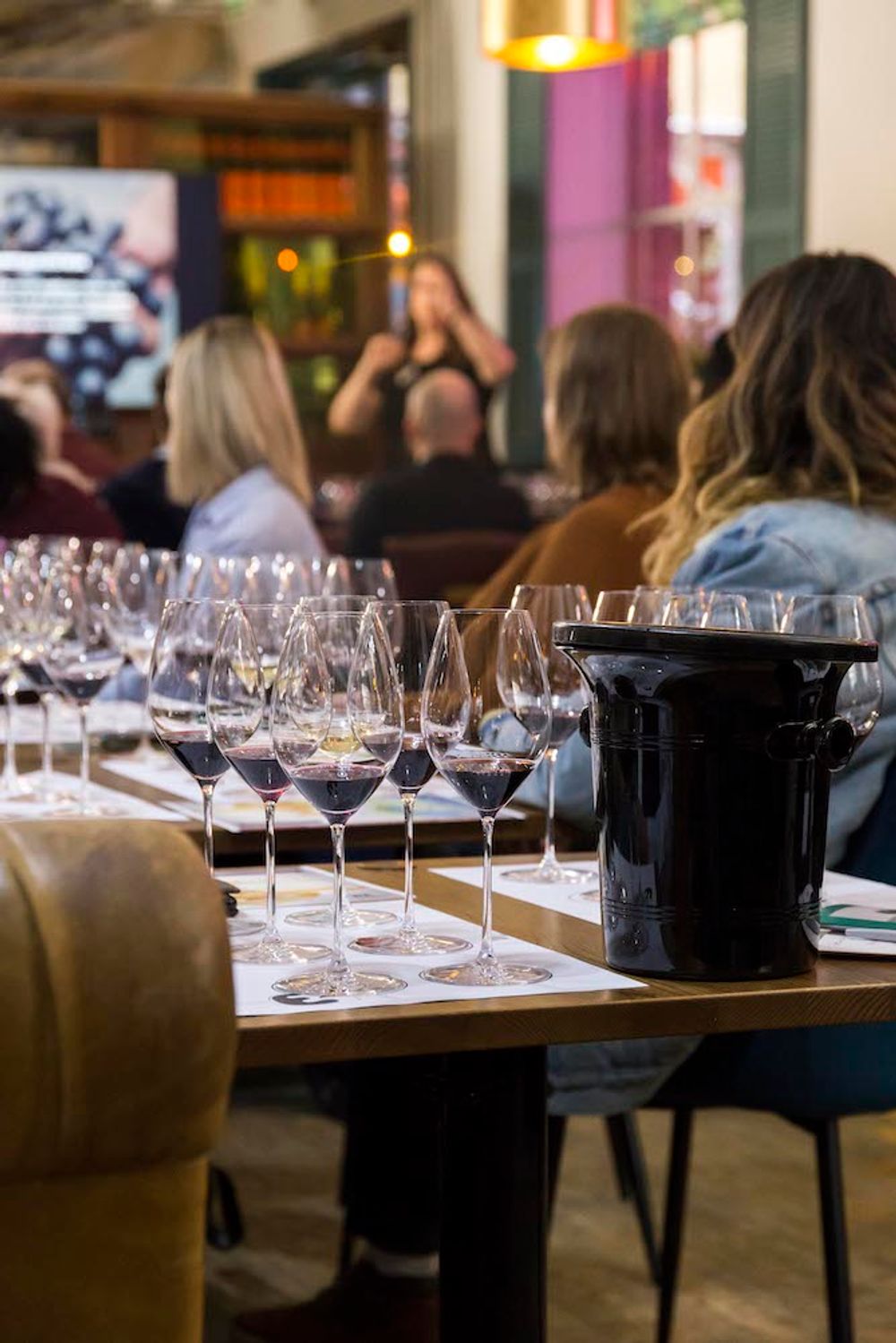
Washington State Wine tasting, March 13, 2023
Wine from Washington State, which butts up to Canada in the north-west of the United States, seems to fly somewhat under the radar in the UK, compared to its better known neighbours Oregon, to the south, and California beyond that.
Although vines were first planted in this solidly agricultural region in the 19th century, phylloxera then Prohibition killed off its nascent wine industry, which was kick-started again only in the 1960s when commercial vineyards were first planted. Chateau Ste. Michelle, the state’s largest winery, was established in 1967; by 1970 there were 10 wineries, which grew to 100 by 2000 and now stands at over 1000. Around 20 of these were on show at the Washington State Wine Commission tasting at the Tanner Warehouse in Bermondsey, around half of which are seeking representation in the UK market.
The main wine regions lie due east of Seattle, Washington’s coastal, switched-on capital (Microsoft and Amazon are headquartered here), in the rain shadow of the Olympia and Cascades mountain ranges. While the latitude is about the same as Bordeaux, the terrain is very different – it is essentially a semi-arid desert, with sandy alluvial and loess soils sitting on a bedrock of basalt.
Cold winters and hot, dry summers, with a large diurnal range, are well suited to winemaking and while irrigation is essential, there is an abundance of water available from the Cascades, that rise in parts to over 4000 metres. Over 24,000 hectares are under vine, producing around 17 million cases per year.
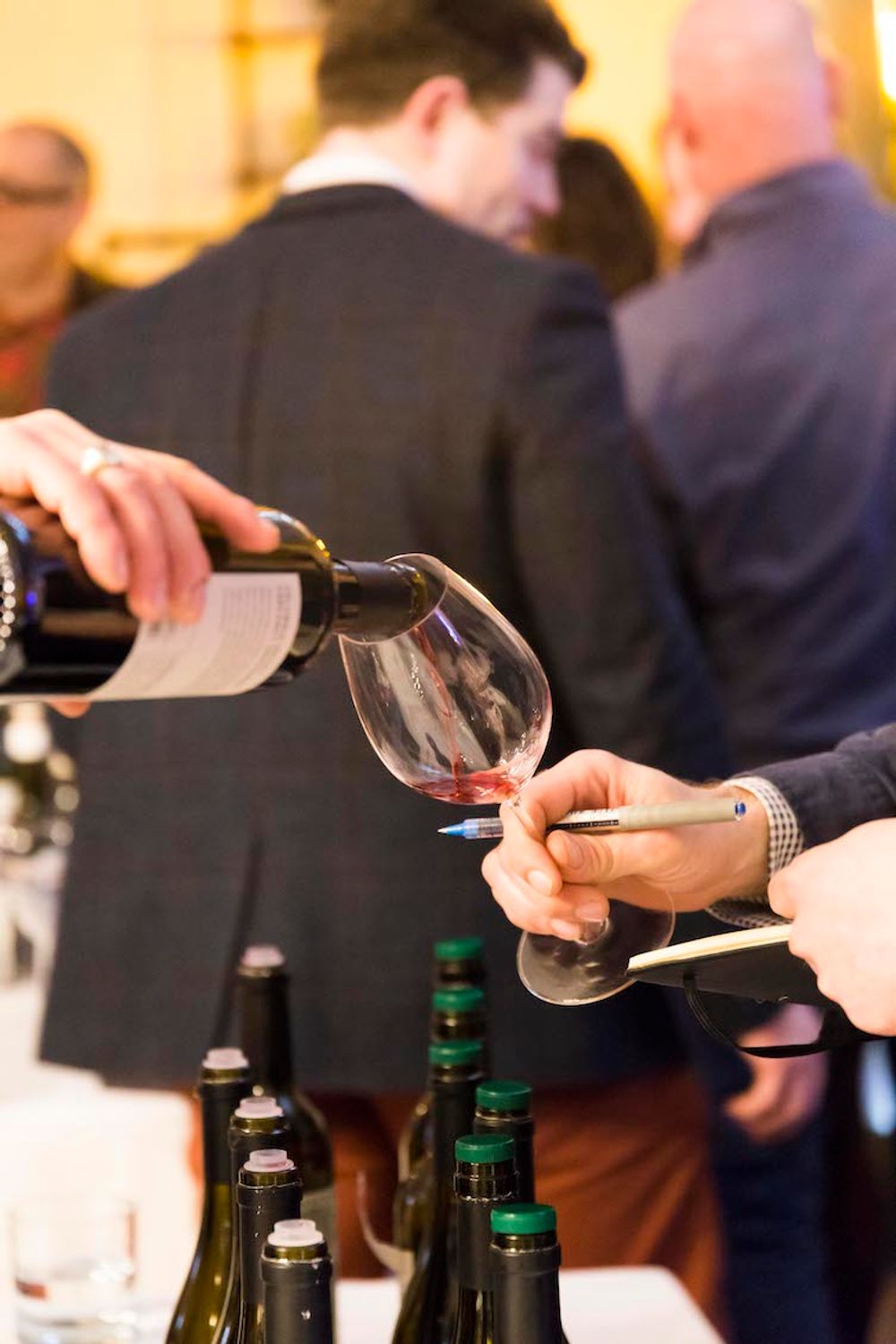
A distinct Washington State wine style
At the tasting, I was initially struck by the uniformity of the wines on show, and their pretty top-heavy prices. Although over 80 varieties are grown, Cabernet Sauvignon, Merlot, Syrah, Chardonnay and Riesling account for 80 percent of total production. Sleek, well-made Bordeaux and Rhone red styles dominate, balancing New World plushness of fruit with the sometimes austere structure of traditional Old World wines.
Many of the reds were quite hard going – heavy on alcohol, extraction and forthright oak – but I suspect in many cases this was because they’d benefit from more bottle ageing. There were some notable exceptions, most especially from Ally Wines, a UK importer specialising in interesting wines from innovative producers in the USA.
On balance, Hedges Family Estate had the range that I enjoyed the most. Established over 30 years ago by Tom Hedges and his French wife, Anne-Marie, it is now run by Christophe, their son, and daughter Sarah, who is the winemaker. On the one hand, they make traditional-style wines from mainly French varieties; on the other, they are very forward thinking. Their entry-level range is made from grapes bought from eco-friendly vineyards across the Columbia Valley AVA (American Viticultural Area) while their premium Estate wines are made from their own fruit, farmed biodynamically since 2008, in the prestigious sub-region of Red Mountain.
These wines reflect the modish (but still relatively rare in the region) low-intervention approach taken by Sarah – spontaneous fermentation, low sulphur, little or no filtration or fining – with the resulting wines immaculately clean, the inevitable vintage variation something they clearly relish.
Like many wineries here, Hedges is taking advantage of the changing profile of wine drinkers in their home market, which has ramped up since Covid, when younger drinkers turned their attentions to wine. The huge uplift in domestic tourism saw Seattle’s young and curious residents flock to many cellar doors across the region.
“They are looking for places that resonate with their eco-bent, which is why they like what we do,” says Christophe. “We changed the concept of our ‘tasting room’ and made it into a wine bar instead, and this year we’re opening a restaurant.”
This booming market goes some way to explaining the relatively high prices charged for the wines on show. “We export only seven percent of our production, and the UK accounts for less than one percent of that,” says Christophe. “The UK is a notoriously hard market,” he goes on. “We can’t compete at the lower end, but it’s nice to have the prestige of our premium wines being here.”
My Washington State wine tasting top ten:
Hedges Family Estate, Red Mountain, Touriga Nacional 2018 (£27 Collectivino)
Hedges planted the Portuguese varieties Souzao, Tinta Cao and Touriga Nacional back in the mid-90s – a canny move as they have adapted very well to Washington’s warm climate, producing wonderfully expressive wines. This is rich and brooding with gentle notes of dark chocolate and warm spice lifted by a seam of acidity that brings a rustic energy to its juicy cherry fruit. A very attractive, intriguing wine that I imagine will get even better with age. Also available, their fresh and crunchy CMS Organic is a more affordable £15.50.
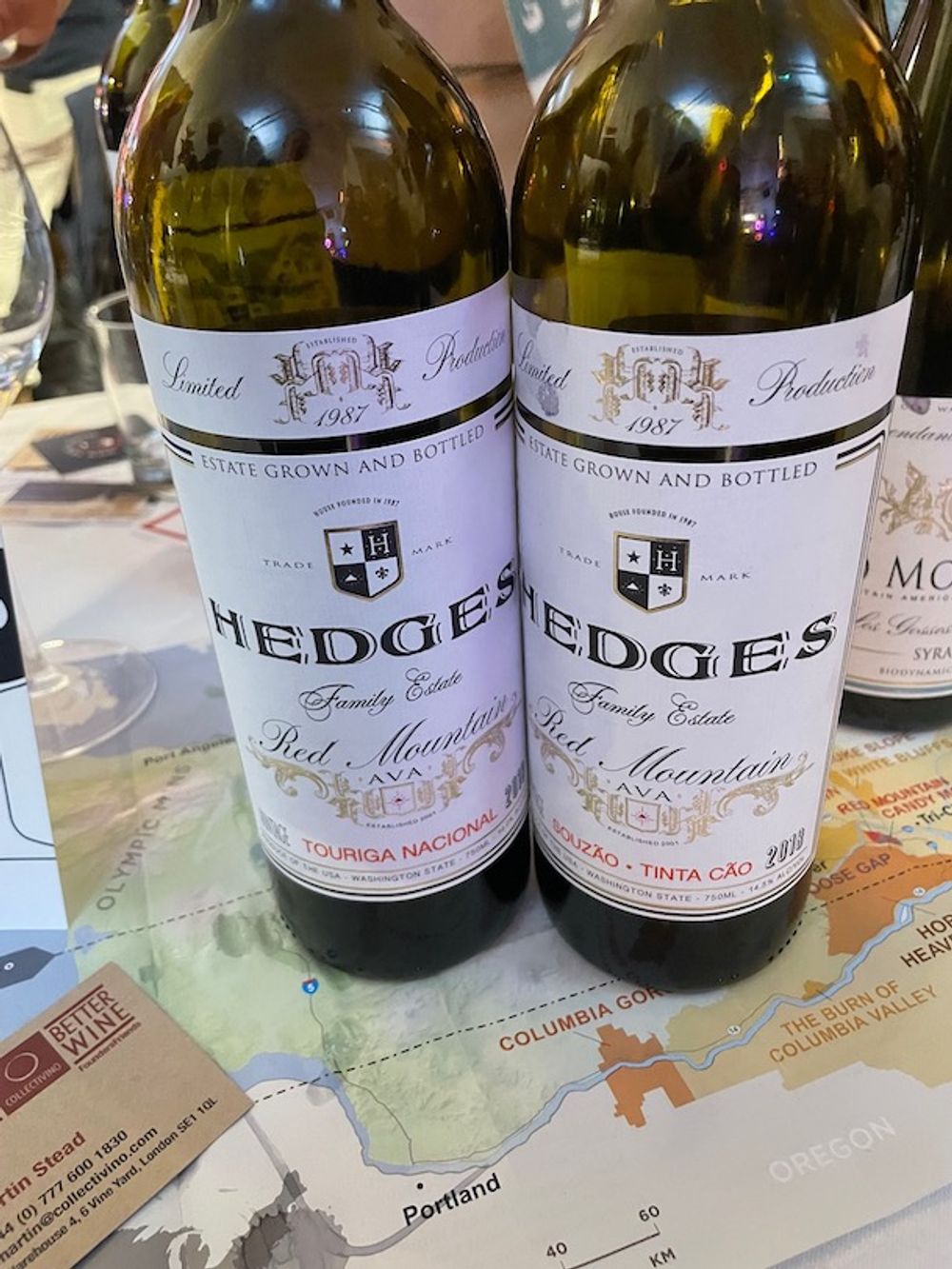
Hedges Family Estate, Descendants Liégeois Dupont Blanc 2020 (£27 Collectivino)
Made from foot-trodden Marsanne and Viognier grapes pressed into a mix of oak and stainless steel barrels, this is generous but not blowsy. Floral, peachy aromatics give way to a palate redolent of apricot-and-almond patisserie, finishing with perky lemon zest.
Kiona Vineyards, Chenin Blanc 2021 (£15, Ally Wines)
The pioneering Williams family planted vines in Columbia Valley back in 1976 and their Kiona Vineyards winery is now in the capable hands of the third generation. This Chenin-heavy blend from 9 plots has a little Roussanne and Viognier added, variously fermented in barrel, stainless steel and clay amphorae, with some of it undergoing malolactic fermentation to give a pleasing butteriness to its ripe, but balanced fruit. The standout bargain of the tasting.
Grosgrain, Pét Nat, Old Vine Lemberger 2021 (£27 Ally Wines)
Matt and Kelly Austin left their lawyer/fashion designer careers in California in 2014 and moved to Walla Walla to make wine from ‘underdog’ grape varieties. This pet nat made from Lemberger (aka Blaufränkisch in Austria), planted in the Kiona Vineyard in 1976, is a joy. Fashionably hazy pale pink and bursting with pomegranate and wild strawberry fruit, it carries its gentle bubbles in a softly creamy texture and finishes with a citric, slightly salty twang. Their Philips Vineyard Albariño 2021 is also very good.
Eroica XLC, Riesling 2019 (£22 Enotria & Coe)
The Eroica label, part of the vast Chateau Ste. Michelle stable which covers 13 brands, is a long-standing collaboration with the famed Mosel winemaker, Ernst Loosen. XLC is its top cuvée; extended lees contact (geddit?) with nearly two years in oak, gives a yeasty grip to its exuberant lime-scented fruit which is carried with the characteristic whiff of diesel fumes that lovers of ageing Riesling so adore. A very happy marriage of Old and New World Riesling expertise.
Reynvaan Family Vineyards, ‘In The Rocks’ Syrah 2019 (£70 Ester Wines)
Matt Reynvaan dropped out of college in 2004 and persuaded his family, who had no background in viticulture, to plant vines on their land in Walla Walla. It was a brave decision that has paid off handsomely, for their Rhône-inspired wines are now some of Washington State’s most highly regarded bottles. Largely eschewing the use of new oak, Reynvaan’s wines are made with great finesse and sing with the distinctive signature of their special terroir. I loved their waxy, slightly nutty ‘Queen’s Road’ Marsanne/Viognier blend, but this wine was my standout from their impressive range. Syrah with a dash of Viognier, it’s earthy but ethereal; meaty and peppery, but with a fragrant, red-fruit delicacy underpinned with a saline, mineral smack on the finish. Expensive, but completely beguiling.
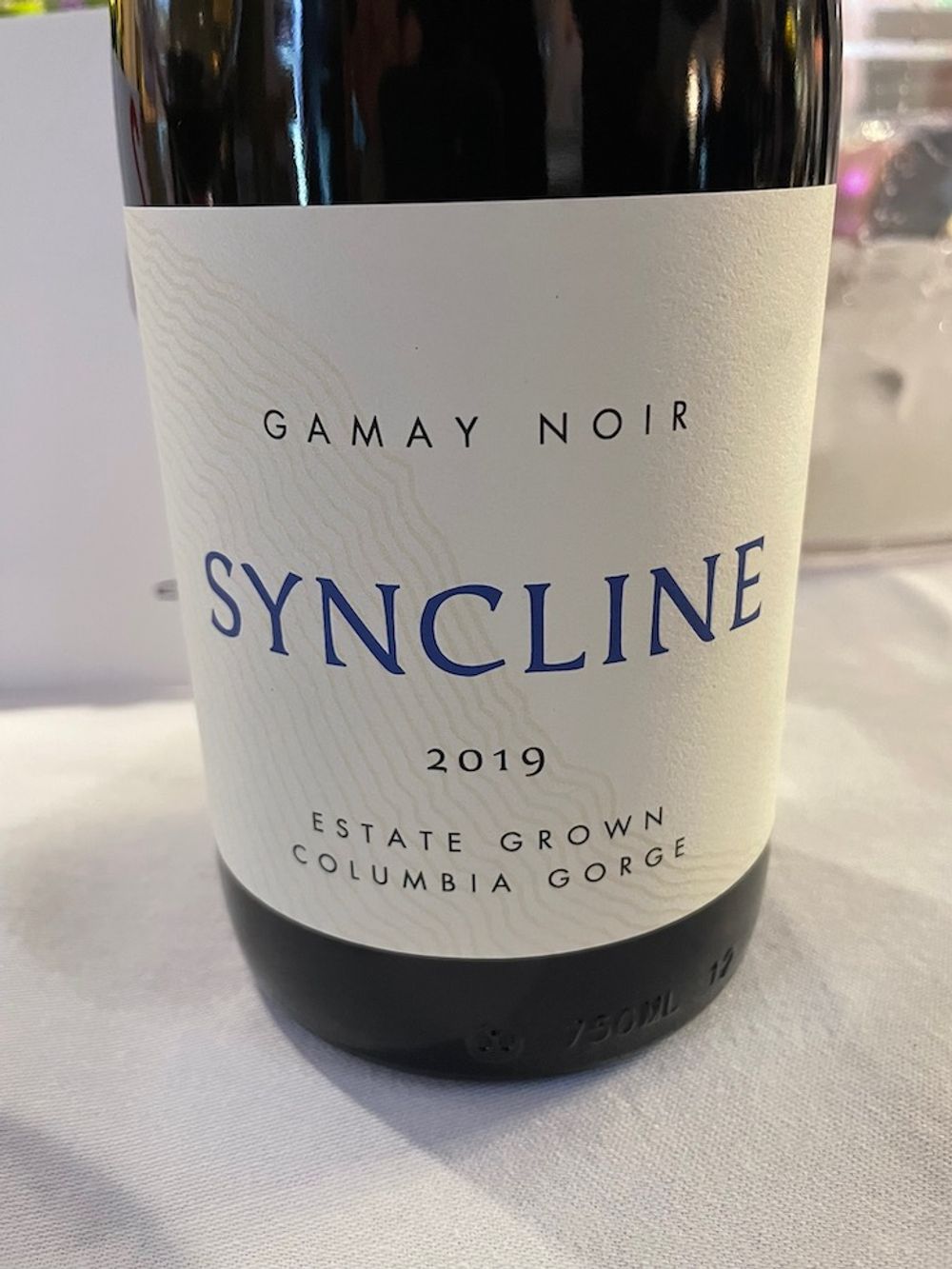
Syncline, Gamay Noir 2019 (£27 Ally Wine)
Poppie and James Mantone met while working the 1997 harvest in Oregon. They quickly fell in love, married and moved to the wild Columbia River Gorge, where they now grow vines following biodynamic principles, producing refined, low-intervention wines such as this. Fermented in concrete vats with native yeasts, its red-berry fruit is understandably riper than most Gamay from its Beaujolais homeland, but it’s beautifully balanced with a pretty nose and herbaceous freshness.
Gramercy Cellars, ‘L’Idiot Du Village’ Mourvèdre 2019 (£40 Flint Wines)
Founded in 2005 by Master Sommelier Greg Harrington, Gramercy Cellars is now among Washington’s most renowned wineries, particularly famed for its various impressive iterations of Syrah. This, however, is their wine that particularly caught my eye. I’ve always had a soft spot for Mourvèdre’s burly, rugged, in-yer-face swagger; here it’s tempered by bright, crunchy fruit, some subtle spice and a savoury leanness. This feels like a wine just getting into its stride; if I could afford it, I’d buy a couple of cases and enjoy seeing how it evolves over the next few years.
Double Canyon, Cabernet Sauvignon 2019 (£27.50 Wanderlust Wine)
The Double Canyon Vineyard was planted in 2007 in the Horse Heaven Hills AVA. The very warm climate is moderated by the cooling winds from the Columbia River that blow almost constantly, making it ideal for the chemical-free, sustainable viticulture practised here, where Bordeaux varieties are planted at almost double the density more commonly found in the area, to naturally reduce yields.
The Double Canyon Winery was opened in 2017, with winemaker Kate Michaud, who had cut her teeth at Bonny Doon in California and Kim Crawford in New Zealand, as well as stints working in Canada’s Okanagan Valley and elsewhere in Washington State. She takes a low-intervention, additive-free approach, treating the clear, pristine fruit with a lightness of touch that elevates it to something altogether more elegant than its 20 months in oak and 14.2 percent ABV might suggest.
Chateau Ste. Michelle Cold Creek Vineyards Cabernet Sauvignon 2019 (£39 Enotria & Coe)
Because it’s not all about me, I’m listing this for lovers of concentrated cassis bombs. 100 percent Cabernet Sauvignon from this hot and dry single vineyard, the oldest in the state to have produced Cab’ continuously since it was first planted in 1973, where some of the original vines still exist. Dark and intense, given extra weight and structure by 18 months in 50/50 old and new oak, the tannins are robust, as you’d expect, and its 15 percent ABV comes as no surprise.
Prices are approximate recommended retail.
